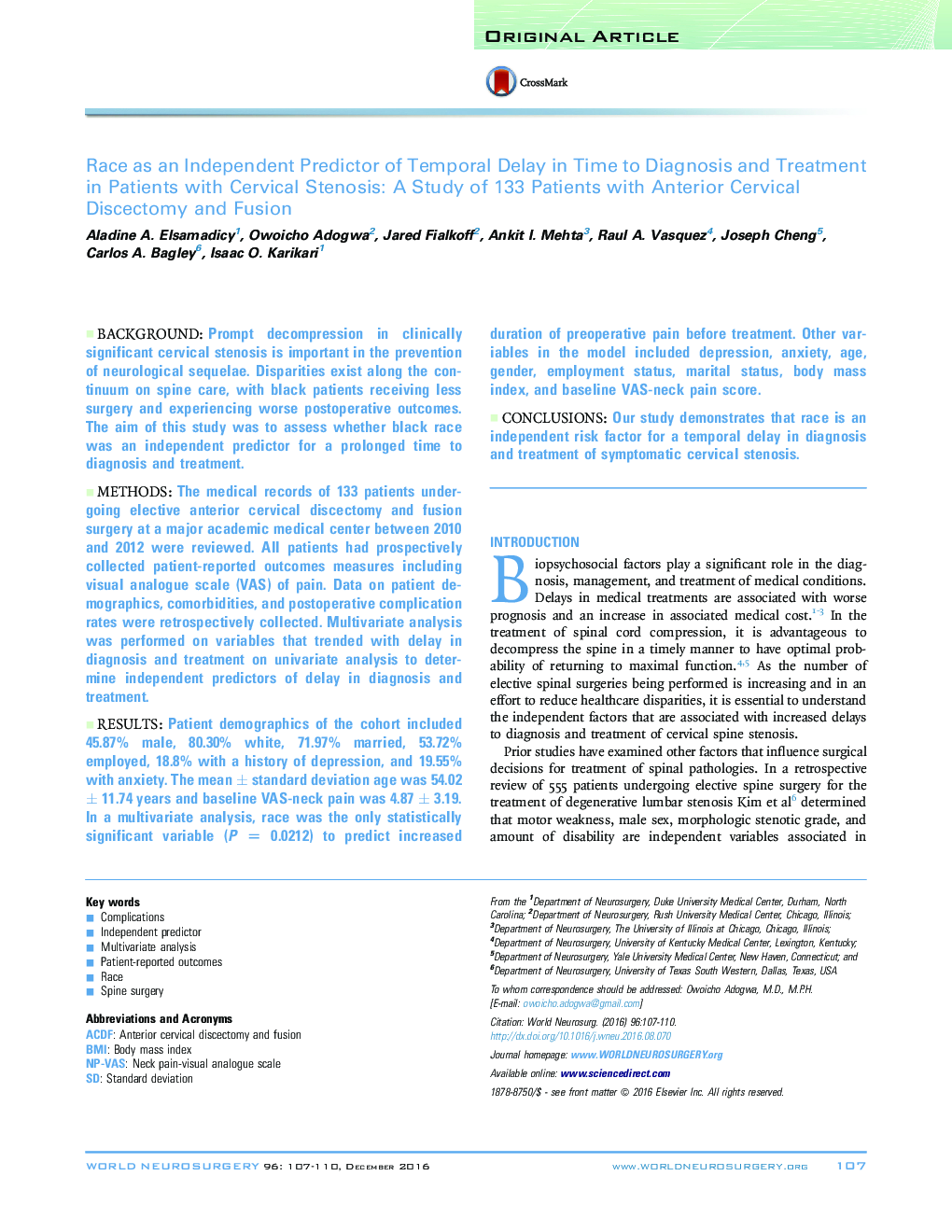| Article ID | Journal | Published Year | Pages | File Type |
|---|---|---|---|---|
| 5635010 | World Neurosurgery | 2016 | 4 Pages |
BackgroundPrompt decompression in clinically significant cervical stenosis is important in the prevention of neurological sequelae. Disparities exist along the continuum on spine care, with black patients receiving less surgery and experiencing worse postoperative outcomes. The aim of this study was to assess whether black race was an independent predictor for a prolonged time to diagnosis and treatment.MethodsThe medical records of 133 patients undergoing elective anterior cervical discectomy and fusion surgery at a major academic medical center between 2010 and 2012 were reviewed. All patients had prospectively collected patient-reported outcomes measures including visual analogue scale (VAS) of pain. Data on patient demographics, comorbidities, and postoperative complication rates were retrospectively collected. Multivariate analysis was performed on variables that trended with delay in diagnosis and treatment on univariate analysis to determine independent predictors of delay in diagnosis and treatment.ResultsPatient demographics of the cohort included 45.87% male, 80.30% white, 71.97% married, 53.72% employed, 18.8% with a history of depression, and 19.55% with anxiety. The mean ± standard deviation age was 54.02 ± 11.74 years and baseline VAS-neck pain was 4.87 ± 3.19. In a multivariate analysis, race was the only statistically significant variable (P = 0.0212) to predict increased duration of preoperative pain before treatment. Other variables in the model included depression, anxiety, age, gender, employment status, marital status, body mass index, and baseline VAS-neck pain score.ConclusionsOur study demonstrates that race is an independent risk factor for a temporal delay in diagnosis and treatment of symptomatic cervical stenosis.
